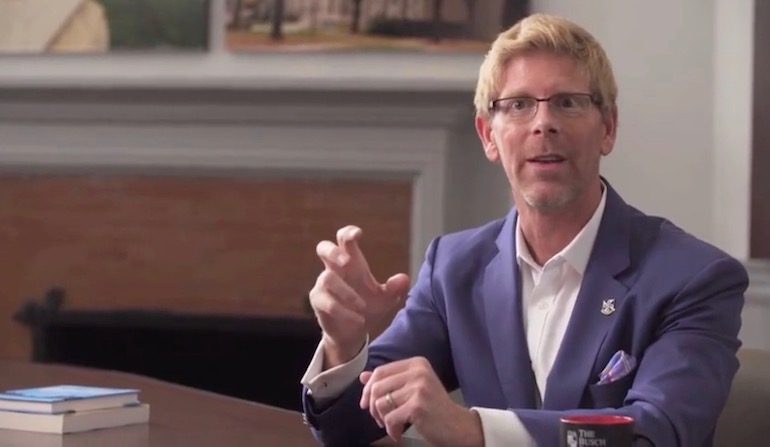 Neuroscience & Mind
Neuroscience & Mind
Jay Richards: The Many Dilemmas of Materialism

Philosopher Jay Richards is one of the scholars who star in the first episode of the counterprogramming series of short videos Science Uprising. In the course of filming, he sat down with the producers to discuss the philosophy of materialism:
While it’s widely accepted as the foundation of science, and of modern thought generally, materialism falls far short when you consider it with any seriousness, as Dr. Richards briefly does here. It leads to absurd claims, surprisingly maintained by very smart people like Sam Harris, including the non-existence of the self. “This is the dilemma of materialism in a nutshell,” says Richards. “You have selves writing books trying to convince other selves that neither of them exists.”
Actually there’s more than just one dilemma. When you go off to an elite college today, you’re expected to think about the most important questions as if it were true that only material things exist, that thoughts themselves are to be equated, without remainder, with chemicals acting in the brain.
The Price of Admission
Richards: “The idea that my thought about something would be identical with a chemical reaction in the brain or just a pattern in the brain doesn’t even make sense. It’s not so much that it’s false, as it’s not even a well-formed claim.” And yet, again, if you want to be seen as a sophisticated person in 2019, embracing that claim and scorning those who reject it is taken as part of the price of admission. Think about that.
Watch the first episode of Science Uprising, “Reality: Real vs. Material,” here:
As Daniel Dennett says, also in the episode, this materialist view is a deduction from Darwinian theory. “Everything, if Darwin is right, is mechanical and blind and purposeless at the bottom.” Or perhaps the it’s other way around. If materialism is true, then something like Darwinism must also be the case. But if the premise is false, a compounded absurdity, then other, wonderful possibilities open up to us.
